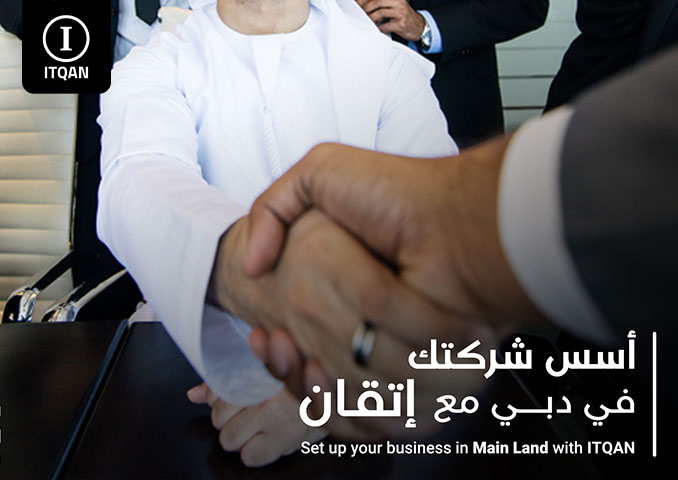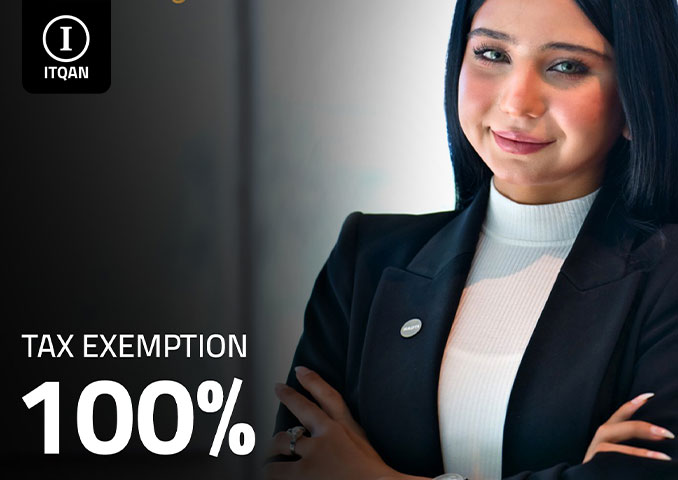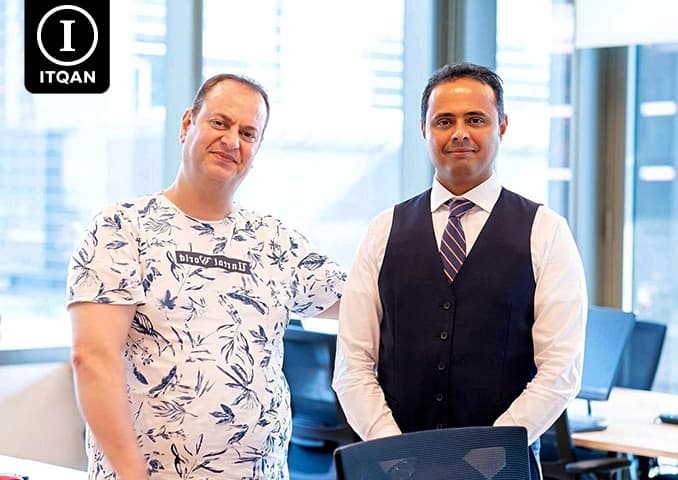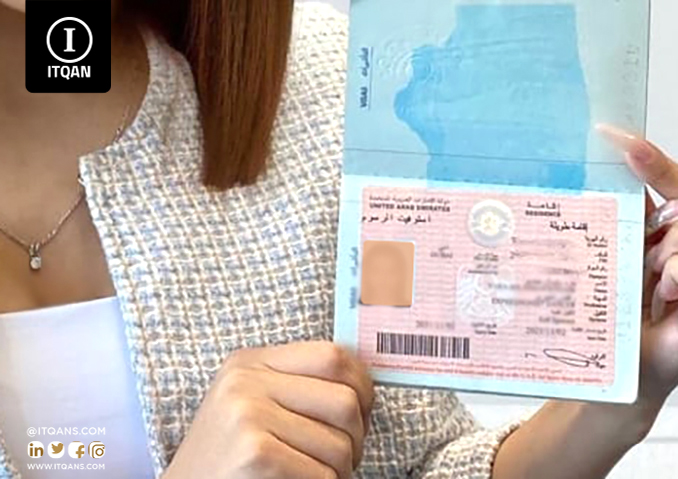Dubai’s free zones are considered one of the most prominent global investment destinations, providing an ideal environment for startups and pioneering companies alike. Establishing a company in the Dubai Free Zone can be the first step towards achieving world-class business success. Dubai’s free zones are characterized by an advanced legal system that enhances business growth and provides attractive incentives to investors.
Dubai’s free zones have a number of unique advantages that make them an ideal destination for establishing companies, including full tax exemptions on income and profits, as well as not imposing value-added taxes or customs duties on imports and exports. In addition, free zones allow investors full ownership of companies without the need for a local partner, which provides them with full control over business operations.
The process of establishing a company in free zones usually begins with identifying the desired business activity and choosing the appropriate free zone that corresponds to this activity. Next, an application for the appropriate license is required, which includes submitting documents such as the business plan, evidence of the availability of capital, and identity documents of the founders. After the application is approved, investors can complete the registration procedures and obtain the necessary permits to operate the company.
Dubai’s free zones are characterized by advanced infrastructure and comprehensive support services, which contribute to facilitating business start-ups and promoting sustainable growth. By exploiting these opportunities and advantages, investors can establish successful companies with great potential for growth and expansion in the international market.
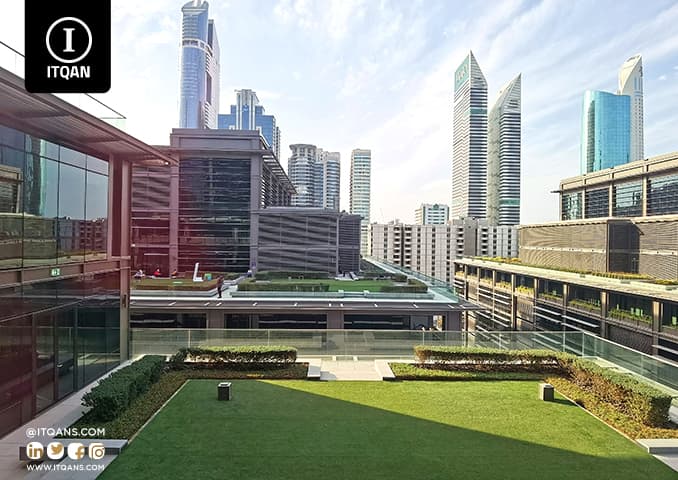
Establishing a company in the free zone in Dubai What is a free zone?
The meaning and definition of the word free zone varies depending on the type of free zone, but in most cases the word free zone expresses a geographical area in which goods are preserved, stored, manufactured, traded and re-exported according to a known and specific customs system, but it is not subject to any customs duties.
The term free zones is also considered to be entities completely separate from the laws of the state, as they are not governed by the trade laws of the country and do not require a sponsor. Likewise, the company that is established in the free zone can be owned by a person of another nationality without the need for a partner who is a UAE citizen.
The free zones in Dubai and in the Emirates in general are not subject to the general laws set by the Ministry of Economy to regulate the commercial activities of companies, as this free zone in Dubai works to provide ownership freedom for businesses, in addition to tax exemption and exemption from any customs duties. These advantages in the free zones make them An ideal and honorable face for international companies that carry out many commercial activities. One of the advantages is that opening and establishing a company in Dubai and in the free zone does not require the presence of a partner or sponsor who is a citizen of the Emirates.
جدول المحتوى
ToggleBasic requirements for establishing a company in the free zone
To establish a company in a free zone in Dubai, you need to fulfill a set of basic requirements. These requirements may vary slightly between different free zones, but generally include:
- Choosing the type of company: Determine the type of company you wish to establish (limited liability company, joint stock company, or sole proprietorship).
- Submitting an establishment application: Fill out and submit the establishment application form for the relevant free zone.
- Determine the business activity: Choose the business activity that the company will undertake and provide an accurate description of it, as some activities may need additional approvals.
- Proof of office address: Submitting an office lease contract or proof of ownership of the location where the company will conduct its business. Some free zones may offer options for virtual offices.
- Office Insurance: You may need to obtain office insurance, which is a requirement in some free zones.
- Government fees: Pay the prescribed fees for registering the company and obtaining a commercial license. These fees include registration, licensing, and visa fees.
- Opening a bank account: Opening a bank account for the company after completing its registration. This requires submitting company documents and some personal documents.
- Work and Residence Visas: Apply for work and residence visas for investors and employees, as needed.
- Compliance with local laws and regulations: Ensure compliance with all local laws and regulations related to the business and its licenses.
- Registration with the relevant authorities: Register the company with the relevant government authorities such as the Tax Authority if there are any tax requirements.
The main advantages of establishing a company in the free zone
Establishing companies in a free zone in Dubai offers many advantages that make it an attractive option for investors. Here are the main advantages:
- Full foreign ownership: Foreign investors can own 100% of the company’s shares without the need for a local partner, which is a great advantage that enhances full control over the project.
- Tax breaks: Companies in free zones often benefit from full tax breaks, including no corporate income tax or value-added tax on business activities.
- Customs exemptions: Investors enjoy exemption from customs duties on the import and export of goods, which reduces costs and enhances competitiveness.
- Simplified and fast registration procedures: Free zones provide fast and flexible registration procedures, which helps speed up the company establishment process and avoid bureaucratic complications.
- Advanced infrastructure: The free zones are equipped with modern infrastructure, including offices, warehouses, and logistics facilities, providing a comfortable and efficient work environment.
- Ease of opening bank accounts: Free zones provide ease in opening bank accounts for companies, which facilitates financial and administrative operations.
- Flexibility in hiring: Companies in free zones can easily hire employees of different nationalities, without the need for specific restrictions on work visas.
- Government support and facilities: Free zones provide government support and facilities to investors, including consulting and guidance services and assistance with legal procedures.
- Flexible laws and legislation: Free zones have flexible laws and legislation that are in line with modern business requirements and help facilitate operations.
- International business environment: Free zones provide an international business environment, which facilitates access to global markets and enhances opportunities for international growth and expansion.
- Flexible residence visas: Free zones offer flexible residence visas to investors and employees, which contributes to attracting international talent and enhances the stability of the working team.
Types of companies that can be established in the free zone
Here is a table showing the types of companies that can be established in the Dubai Free Zone, with a brief explanation of each type:
| Company type | Description |
|---|---|
| Limited Liability Company (LLC) | A limited liability company allows its owners to protect their personal assets from business liabilities. It can be established by one investor or several investors. |
| Sole proprietorship | A company owned and controlled by one individual. They can provide a variety of services or sell products. |
| Subsidiary company | A branch of an international or local company. He can carry out business activities in Dubai under the mother’s brand. |
| Sole proprietorship company | A company wholly owned by one person. They are often used by individuals who want to start a small business. |
| Partnership company | A company in which several individuals or entities participate. It can include general or limited partnerships according to agreement between the parties. |
| Trading company | A company specialized in trading goods and products. Includes agents, distributors and retail centres. |
| Consulting company | A company that provides consulting services in various fields such as management, technology, and finance. |
| Technology company | A company operating in the technology sector, such as software development, IT solutions, and technology innovation. |
| Industrial company | A company that specializes in manufacturing or production, including converting raw materials into finished products. |
| Logistics services company | A company that provides transportation, warehousing, and supply chain management services, including international and domestic shipping. |
| Investment company | A company that invests in various projects and assets, including stocks, real estate, and new projects. |
Types of companies vary depending on the business activity and business requirements. Each type offers specific benefits and is subject to Dubai Free Zone laws and regulations.
Costs associated with establishing a company in the free zone
When setting up a company in the Dubai Free Zone, there are a range of associated costs that you need to take into consideration. These costs include:
- Registration and licensing fees: Includes the costs of registering the company and obtaining a business license in the free zone. These fees may vary based on the type of company and business activity.
- Office Rent: The cost of renting office space in the free zone, which can vary based on location, office size and available facilities.
- Visa fees: Costs of issuing work and residence visas for investors and employees. These fees include the costs of issuing and renewing visas.
- Legal and accounting services fees: The cost of legal and accounting consultations to establish the company and ensure its compliance with local laws.
- Insurance: Insurance costs for business and office assets, as well as health insurance for employees if necessary.
- Virtual Office Charges (if required): If using Virtual Office services, there may be associated costs, including the use of a postal address and secretarial services.
- Bank account opening fees: Some banks may charge fees for opening business bank accounts, which can include account setup fees and other related costs.
- Administrative and operational costs: include the daily costs of operating the company, such as public services, communications, and office equipment.
- Marketing and advertising costs: The company’s marketing and advertising costs to attract customers and build its brand.
- Other government and administrative fees: These include any additional fees that may be required by various government agencies, such as trademark registration fees or special permits.
At the conclusion of our article about establishing a company in the free zones in Dubai, it becomes clear that Dubai provides a unique and attractive business environment for investors from all over the world. Free zones allow investors to benefit from a range of advantages that enhance the success of commercial projects. From full foreign ownership and tax facilities, to modern infrastructure and customs exemptions, Dubai’s free zones offer an ideal environment for business growth.
When establishing a company in one of these regions, investors must be familiar with all aspects of the process, from choosing the appropriate business activity and determining the type of company, to fulfilling all legal and administrative requirements. This includes preparing the necessary documents, securing the office, and handling fees related to registration and licensing. Providing visas and preparing bank accounts are also essential steps that contribute to a smooth start of work.
Companies in free zones benefit from distinguished government support and various facilities, which contribute to achieving their commercial goals effectively and efficiently. However, success in this field requires good preparation and sound financial planning, as well as adherence to local laws and regulations.
The most important frequently asked questions about establishing a company in the free zone in Dubai
What are the options available for renting offices in free zones?
Free zones provide various office rental options, ranging from traditional office spaces to coworking spaces. Investors can choose the option that best suits their needs and budget.
Can a company in the free zone employ non-resident employees?
Yes, companies in free zones can employ non-resident employees. This requires the issuance of work visas to users, which are granted in accordance with the emirate’s immigration and regulations.
Is it possible to transfer the company from one free zone to another?
Yes, companies can be transferred from one free zone to another in Dubai, but this may require the completion of some administrative and commercial procedures in accordance with the legal requirements and regulations of each zone.
What are the procedures for closing a company in the free zone?
Company closure procedures include submitting a closure request to the free zone administration, settling any financial obligations, canceling licenses and permits, and re-leasing or liquidating the company’s assets.
What are the environmental requirements for establishing a company in free zones?
Environmental requirements vary depending on the type of activity. Companies operating in industrial or service fields may need to obtain certain environmental approvals to ensure compliance with local and international environmental standards.








